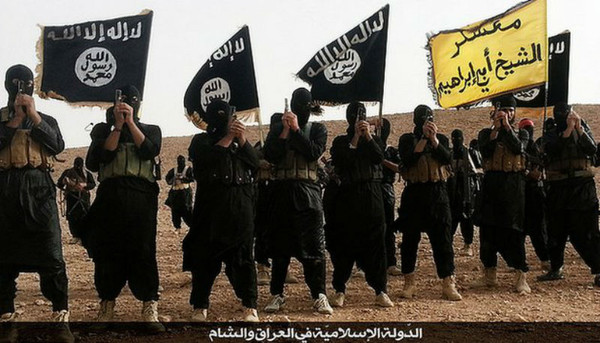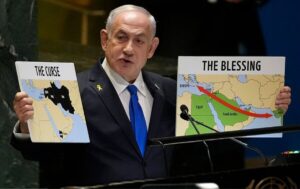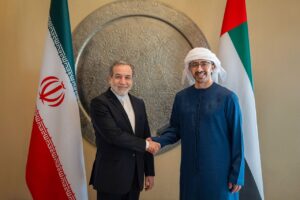The ISIS crisis can be considered from three dimensions:
· Internal roots of ISIS crisis in Iraq power structure
· Effective international players on ISIS crisis
· Effective regional players on ISIS crisis
This article aims to provide an overview of the two mentioned above items and consider the role of regional players involved in ISIS crisis and finally achieve some suggestions to the future of Persian Gulf issues.
Internal roots
The following reasons can be concerned as the causes of internal roots of the crisis:
۱. Rapid changes has occurred in power distributions system from Baath Party and Totalitarianism to the structure of democracy.
۲. After the fall of Saddam and the Baath Party and occupation of Iraq, the United States played the role of undisputed power and assume to make security. After the reduction and withdraw of US forces from Iraq, making the security became one of the responsibilities of political system of Iraq which seems out of the level of dominant power. The lack of this power, raise the greed of disaffected Sunni, Baath and former military commanders from new power distributions.Cause of failure in election votes, they choose other ways to reach their interests.
۳. The weakness of Nouri al-Maliki in establishment of unity between different axes of powers among Shia and Sunni so that they have contribution in power.
۴. Failure to check the development and welfare schemes approved in Al-Anvar, Nineveh and Salahudin province
۵. Unable to remove Baath completely from military and security systems and above all the lack of a military force loyal to the new regime (such as the Badr Corps in a powerful military organization) in order to defend the independence and territorial integrity of Iraq and its political system.
۶. Iraqi Kurdistan dual policy against the central government since the fall of Saddam Hussein actually creates two distinct power in this country. Baghdad and Erbil efforts to greater autonomy or complete independence, increased tensions between the parties after the oil sales in these region without the intervention of the central government, which became the causes of Iraq crisis.
International roots
In general it seems that the interests of world power will need the Persian Gulf out of peace and security, which can be explained by these reasons:
۱. Insecurity that convinces the existence of world powers. Oil and gas resources can be the reasons of world powers struggle for physical presence in the region.
۲. Competitions, Challenges and insecurity problems create the best opportunities for major power and weapon cartels to provide a wealth resource.
۳. ISIS crisis can be considered in the framework of establishing a sustainable security for Israeli.
The role of regional players
The role of regional players can be the main issue for existence of ISIS crisis. Thought and ideological background of ISIS are taken from Salafism. Security and information organizations of Saudi Arabia supports ISIS to employ forces in Iraq. Many of ISIS members trained in Jordan. Al-Jazeera and Al-Arabiya reports emphasize on Al-Makili mistakes too much.
As mentioned in this article, Nouri al-Maliki have made mistakes, but too much emphasis on his mistakes and sometimes exaggerated by the media in the Arabic countries of the region is used as a factor to legitimize the actions of ISIS. But essentially the root of ISIS crisis is from several factors that the weakness of him seems in the low ranks.
The rich petrodollar of Saudi Arabia and Qatar plays as a strong support role to the rise of the Islamic State.
The main issue in ISIS crisisis that Persian Gulf region and Southwest Asia is in the geopolitical transition.
The main point of this paper is that ISIS is the result of puberty strategic competition between regional powers. Like anywhere else in the world, countries are looking for their national interests but this situation in the Persian Gulf region has become complex. Here are some reasons:
۱. Ideological and power competition in the region.
۲. Huge money earned by oil will raise the demands of active governments of the region.
۳. Promoting Shiite phobia and Iran phobia among Arab society.
۴. The absence of dialogue atmosphere between elites in the three levels of governmental, academic and religious groups in the region, has caused the mental space of each side strongly be apart from each other.
Conclusions
The ISIS crisis should be considered and evaluated in the framework of huge geopolitical conflicts in the region. Mistrust atmosphere, some oil powers willing to expand the regions under their control beside huge money earned by oil are the main factors of forming this situation in the region including ISIS crisis.
With these challenges process, it is hard to imagine a positive outlook for Muslim world.The challenges among governments of southwest region are not deeper than the challenges among European states since last three thousand years. The model of achieving a widespread political, cultural and economic agreement can be operated from an economic cooperation. Actually estimating of social situation of Middle East compare to other regions of the world including Latin America, Europe Union and ASEAN countries indicate greater subscription which are the result of hundred years of living these nations together.
This discussion needs forming a basic infrastructure of thought exchange among three levels of elites which requires an understandable conversation culture in the light of relative trust.
Suggestions
As the first step, non-media critical dialogue should be created in high levels of strategic decision-making among countries.Clarification of disputes and removing them from misunderstandings can be the results of this activity. At the next step disputes are rated in expert delegations and cooperation mechanism based on common interest sharing will replace the current state of the conflict. This requires tolerance, forgiveness which are the consequences of continuing trend and benefits of adopting a new solution in the region to achieve regional and national interests of each countries in Southeast Asia and the Persian Gulf.
So in light of continuing negotiations, to achieve a positive result, the second part of the elites characters will have the possibility of excellence and will be a base to make right decisions in which the possibility of returning the benefits of a lot of people provided in the light of the coalition.
Dr. Seyed Hameh Safavi





